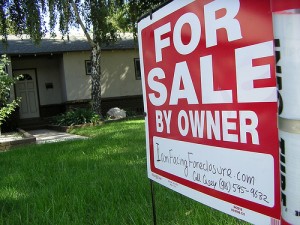Fixed vs Variable Mortgage Rates
 Your home mortgage choice goes beyond which lender to use. Mortgages come in different types and each kind has its own distinct set of advantages and disadvantages. One of the most common decisions you’ll have to make is whether you want a fixed or adjustable rate mortgage. While it’s easy to be lured to the lender offering the lowest interest rate, the interest percentage difference between a fixed and variable rate loan shouldn’t be your ultimate deciding factor.
Your home mortgage choice goes beyond which lender to use. Mortgages come in different types and each kind has its own distinct set of advantages and disadvantages. One of the most common decisions you’ll have to make is whether you want a fixed or adjustable rate mortgage. While it’s easy to be lured to the lender offering the lowest interest rate, the interest percentage difference between a fixed and variable rate loan shouldn’t be your ultimate deciding factor.
Fixed Loan Rate
The interest rate offered with a fixed rate loan will depend largely on your credit score and history. However, traditional fixed loans often have a higher rate than variable mortgage rates and will reflect the average fixed rates for credit products in the market at the time you apply for your loan. Make sure your credit reports are as clean as possible before you apply for a fixed loan to improve your chances at getting approval and a decent rate offer.
If you qualify for a loan backed by the U.S. Department of Veterans Affairs, known as a VA mortgage, or one backed by the U.S. Department of Housing and Urban Development, commonly called an FHA mortgage, you may see very little difference in interest between the fixed and variable rate offers. VA and FHA loans are backed by the federal government and have specific rules and interest rate calculation procedures that lenders must use.
Your total mortgage payment may still change even if you have a fixed loan if you have an escrow account. An escrow is an account in which you deposit money throughout the year to cover some housing bills, such as property taxes and homeowners insurance. If your escrow payment is part of your total mortgage payment, your total bill may change if your escrow items go up or down.
Variable Mortgage Rates
Rates on a traditional variable mortgage are often lower than you’d receive on a fixed-rate loan but only for the promotional or early loan period, before the reset. The period before the reset can be as little as six months or as long as a year or two. When the interest rate resets, your rate can double or even triple, depending on the market rates at the time and the maximum rate cap on your loan.
For example, if your loan has a 4 percent interest rate but the maximum cap is 15 percent, your rate can go as high as 15 percent when you hit the reset. How high your rate will go depends on various factors including financial market conditions and the formula your lender uses for rate calculation.
If you’re only planning on having your loan for a short period of time, a variable mortgage can save you money with its lower rate. However, you must be able to pay off or refinance the loan before the reset to realize the savings.
Anna is an experienced real estate writer. She has been writing for websites and printed media for more than 10 years and has written extensively on the mortgage industry, including and both fixed and variable mortgage rates.
Category: Mortgage






Comments (1)
Trackback URL | Comments RSS Feed
Sites That Link to this Post